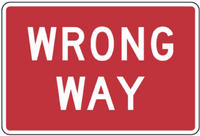
 Every second of every minute of every hour of every day, someone in the world dies. One one-thousand, two one-thousand, three one-thousand. Death is 100% consistent, completely methodical. And the fact that death is universal has led many to speculate regarding its finality: Is death but a doorway to an afterlife, to an eternal dwelling?
Every second of every minute of every hour of every day, someone in the world dies. One one-thousand, two one-thousand, three one-thousand. Death is 100% consistent, completely methodical. And the fact that death is universal has led many to speculate regarding its finality: Is death but a doorway to an afterlife, to an eternal dwelling?
Today we will be examining a statement which answers both questions adamantly, holding that:
“WHEN A MAN DIES, HE SIMPLY CEASES TO EXIST. THERE IS NO IMMORTALITY OR ETERNAL LIFE.”
It is my position that Christians should reject this statement as a blatant contradiction of Biblical teaching and that those who hold such a belief are making an incomprehensibly dangerous assumption.
In the short time we have together today we’ll be contrasting the “no-life-after-death” theory with the Biblical belief in eternal life in Heaven and eternal death in Hell and comparing both beliefs in their ability to prepare a person for death and in their consequences.
First of all, it is important to understand that we are dealing with polar opposites; two entirely different conclusions regarding the length of human existence.
In his book, “A Short History of Nearly Everything”, Bill Bryson summarizes the “no-life-after-death” theory’s view of human existence when he says, “Even a long human life adds up to only about 650,000 hours. And when that modest milestone flashes past, or at some other point thereabouts, for reasons unknown your atoms will shut you down, silently disassemble, and go off to be other things. And that’s it for you.”
The phrase, “And that’s it for you” defines the no-life-after-death position:
“650,000 hours, and that’s it for you. The End.”
In contrast, consider the Biblical position on human existence: James 4:14 says, “What is your life? You are a mist that appears for a little time and then vanishes.” On this point both positions agree: “Life is short! Your 650,000 hours are ticking away!”
However, the black-and-white contrast between these two beliefs is shown by comparing the phrase, “and that’s it for you” with Ecclesiastes 12:5 which says, “Then man goes to his eternal home.”
Are we merely 650,000-hour-creatures or are we eternal ones? Is this it or is there more? We must choose our answers to these questions carefully because what we believe regarding the nature of life will seriously affect our ability to deal with death.
To a Christian this life is but a preview, an introduction to a life that lasts forever. And death is but the doorway to Eternity. Therefore we can say with 1 Corinthians 15:54-55, “Grave where is thy victory? Death where is thy sting?”
But death is terrifying if this is all there is. It means “Game Over” when you’re out of quarters. It means “The End” and no sequel. It means “goodbye” with no “see ya’ later”. To reject life-after-death is to reject all consolation regarding death.
 However, that disadvantage pales in comparison to the terrible consequences of being wrong about death. Can we afford to gamble about such things?
However, that disadvantage pales in comparison to the terrible consequences of being wrong about death. Can we afford to gamble about such things?
The truth is that both belief in eternal life and rejection of eternal life are gambles. As Christians we have the clear teaching of Scripture, but even that must be accepted by faith. Meanwhile, those who reject life-after-death have an even shakier foundation to stand on, and arguably, no foundation at all.
We all must take a gamble. So which position should we choose?
Well, if I, as a Christian, died today, and discovered that I’m right about eternity, the rewards would be enormous: eternal life, never-ending life in Heaven. But if I’m wrong and simply ceased to exist, the only loss would be that I didn’t get more kicks out of my 650,000 hours of life because I was trying please God. In other words, Christianity holds the possibility of eternal gain while entailing only temporary loss.
But if someone who rejected life-after-death died, the benefits of being right would only be that he got more kicks out of his 650,000 hours of life. But if he was wrong the loss would be incomprehensible: eternal death, never-ending agony and suffering in Hell. This bet holds only temporary gain while entailing eternal loss.
Now I don’t mean to paint Christianity as merely “the wiser bet,” though I believe it is. But I do mean to show the foolishness of making the assumption that this life is all there is.
 The harsh truth is that death is unavoidable. Now you can call it a bet or you can call it faith. But I would urge you to put your faith on the promises of Scripture and on eternal life. And, if you do believe in Heaven and Hell, ask yourself where you’re headed. Are you going the wrong way?
The harsh truth is that death is unavoidable. Now you can call it a bet or you can call it faith. But I would urge you to put your faith on the promises of Scripture and on eternal life. And, if you do believe in Heaven and Hell, ask yourself where you’re headed. Are you going the wrong way?
Today we’ve examined two opposing beliefs; one that says, “This is it!” and one that says, “There’s more!” The Bible tells us that “God has put eternity in men’s hearts.” If we feel the cry in our heart that says, “There’s more,” then we mustn’t ignore it. We have seen that to reject life-after-death is to reject all consolation regarding death and we’ve examined the losses and the gains of both gambles of faith.
And so I leave you with Isaiah 28:16, which promises that Christ is “a sure foundation; the one that trust will never be dismayed.”










I heard Chuck Missler use this example….
Take a floppy disk – how much does it weigh? (6/10 oz.) Then fill it with the most complex computer program you can – how much does it weight now? 6/10 oz. Bottom line: information does not have mass – it is not a physical property. Information is eternal. 2 + 2 will forever = 4, whether or not it is written down on paper.
Time is a physical property. Therefore, time does not have domain over information.
We are not made up of just our bodies, but of DNA. DNA is information. When our bodies cease to exist, the information that makes us up will still exist. Therefore, we will still exist even after our bodies die. 🙂
Brett, that’s so true. If we believe death is the end, there is no consolation, no hope, no peace. Having lost my dad I can not imagine what I would do or how I would live if I didn’t know he is enjoying the glories of being with the Lord.
Thank you, it was wonderful to read your thoughts. As Christians, we have so much to share!
“Let us weigh the gain and the loss, in wagering that God is. Consider these alternatives: if you win, you win all, if you lose you lose nothing. Do no hesitate, then, to wager that He is.”
Blaise Pascal
Good post, Brett. Although this sort of argument is hard to use as a rationale for persuading non-Christians to adopt faith, it definitely helps us all to put things in perspective. And it is definitely a motivation to go and search out the truth.
Sidenote for Alex: I don’t know where else to say this so that you’ll be sure to see it, but I responded (on my blog) to your essay on divine sovereignty and human will.
Thanks for the feedback, J. I agree, these arguments are more of an encouragement to believers than a powerful persuader. Though, I hope that people who are experiencing loss in this area will be open to my arguments.
Brett,
This is a good post and, as a Christian, I agree with your analysis. Yet I have heard this argument used against hard-nosed atheists, and as Jamie said, it is difficult to build the case for Christianity on this argument alone (I realize that you are not trying to do this). As many people who reject the life-after-death view will point out, there are so many different religions that posit an afterlife that it would be virtually impossible to bet on the right one. They would agree with you that there are incredibly high stakes if there is indeed an afterlife, but also that the wager is an extremely improbable one.
I’m not throwing this out as a criticism, but just to let you know how some unbelievers in my experience have responded to the argument you’re making. That being said, reasoning like this can and has been used to awaken people to the consequences of unbelief. Keep up the good work.
Christopher
P.S. You and Alex have an excellent blog. You are on my must-read list :).
So, maybe what you could say is “here are the consequences for not believing in an afterlife,” and then discuss the different options, keeping in mind that each religion has to include certain principles (e.g. must be available to everyone; must have provisions so that anyone can be saved, even if they lived before the era when the holy book was written, etc.). You end up with Christianity.
Or you could do it the old fasioned way, like the Apostles; find a sick person, pray for them, the person gets healed, people crowd around, you share the gospel. Downside (or upside, depending how you look at it): It takes a whole lot of faith! But if you have faith the size of a mustard seed…… 🙂
I expected to see a logical argument for life after death and why non christians must believe that there is life after death. I was disappointed. This is the same self fulfilling argument I have heard many times in the past. Believe in an afterlife because the consequences of not believing are more dire than otherwise. This is a great basis for a person’s faith? You said that you didn’t mean to post christianity as the “wiser bet”, but that is exactly what you did and it is the only thing you did. If fortifying your beliefs and the beliefs of other christians was your intention, then good job.
I deffinantly agree with this post. Our church’s theme this year is based on John Piper’s book “Life as a Vapor”, and this year more than ever I have come to realise how short life truely is. A lot of Jonathan Edward’s Resolutions have to deal with the concept that he doesn’t want to do something if it is the last hour on earth he has to do it. I think we as Christians should always keep that in mind.
~Nella
Mr. Rant: I appreciate that you kept the tone of your comment reasonably mild considering your disappointment. I’m sorry to have disappointed you, yet I can’t really take responsibility for failing to meet unrealistic expectations.
There is no 100% logical, completely persuasive argument to convince non-believers into believers. That is true for every belief system. There is no chance that one post on your blog would convince me or any of my readers to change our minds regarding this issue.
Give me four or five years, like many colleges get, and I’ll most likely do a more complete job. In fact, I hope to do so in less time! Unfortunately, every concession (for instance, on this issue of eternal life or death) requires mild persuasion on twenty other issues. Time and space has not yet permitted me the luxury to address these other issues.
I’m not claiming that I have all the answers, I’m still learning. But I would encourage you to maintain an open mind and a patient and respectful attitude, as I will also try to do. And hopefully we can both learn and grow.
Thanks so much for reading. God bless.
Now I don�t mean to paint Christianity as merely �the wiser bet,� though I believe it is. But I do mean to show the foolishness of making the assumption that this life is all there is.
Good post. And let’s not forget that the only way you would find out which bet was true, was that if the Christian perspective was true.
Brad
Brett,
The biggest problem with contrasting the possible temporary loss of christianity with the possible eternal loss of atheism (or hedonism, or nihillism, or whatever) is this: You can’t consider the payout without considering the odds. If you put the odds of christianity being true at 1 in 1,000,000, suddenly hedonism doesn’t seem so bad.
This argument probably won’t be convincing unless you can show that christianity has a high probability of being true. (or your audience already believes it, in which case, they probably don’t need convincing.)
Tyler
Tyler: Your point is good. However, the atheist/hedonist/nihilist who is evaluating the odds of Christianity being true must also honestly evaluate the odds for or against their own belief system. Otherwise, no rational decision has been made.
It is at this point that Christianity should win out. Simply put, an consistent nihilist must concede that he can be no more sure of his own nihilistic beliefs (if you can even call them “beliefs”) than he is (or we are) about Christianity.
An honest atheist or hedonist will admit that of all possible knowledge in the universe he only knows a fraction of 1%. And, if he continues in his honesty, he will concede this small fraction of knowledge is insufficient to prove or disprove any position, including his own.
Of course this argument can be turned and used against Christians as well, but that doesn’t affect my argument, which is: all beliefs operate on a measure of faith. And, all things being equal, we can now examine the payouts of each belief. If no belief has greater odds of being true then rationality requires that we choose the one with the greatest possible gain and the least possible loss: Christianity.
This “expected value” argument is a couple of centuries old. It fails for many reasons, but there is one reason that is specific to me: as an atheist humanist, my actions are informed by the fact that there is no afterlife, and that therefore, this life should be about alleviating suffering. It doesn’t mean I’m a hedonist. To the contrary, it means that all of my actions should be about alleviating suffering of humans. In my experience, while Christianity may teach that the alleviation of suffering is a good thing, it is not something that is driven home to practioners.
Hi there, just became aware of your blog through Google, and found that it’s really informative. I am going to watch out for brussels. I’ll be grateful if you continue this in future. Many people will be benefited from your writing. Cheers!
Gary the president’s low popularity is far far higher than congress’s.
USComponent.com is selling electronic parts such as 0000028711000, 00000400MF25VDC, 00000500MFD, 00000750MFD, 00001000MF25VDC, 000011030, 0000180000OH2W5, 00002200MF25VDC, 0000257895, 000030130, 00003402, 000040000OH1, 00004396, 000047MFD5, 00005088, 00005294, 00005942, 000068MFD5, 00007285, 00007773, 00008256900, 00009002, 0000925699, 0000926070, 0000940876, 0000979276, 0000BSS, 0000D3L, 0000FUSENA, 0000KFS, 0000LX1, 0000MPF, 0000PDA, 0000S2V, 0000TIL, 00011003, 00012509, 00011, 0001006204, 000103PF40, and other hard to find electronic components.
Title…
Ugh, I just typed a long comment, but it disappeared when I hit send. Anyway, I’m not going to retype it again, so I just wanted to say nice blog! Better than http://facebook.com! :-)…
Just to let you know your web-site looks a little bit different in Firefox on my computer with Linux .
Have you given any kind of consideration at all with converting your current web site into Spanish? I know a couple of of translaters right here that will would help you do it for free if you wanna contact me personally.
underwear for your particular person who is suffering from your condition. Probably the most important part is
I would like to show thanks to the writer just for bailing me out of this circumstance. Because of browsing through the the web and getting principles which are not helpful, I believed my entire life was well over. Living without the presence of solutions to the problems you have fixed as a result of your main post is a critical case, as well as ones which might have adversely damaged my entire career if I had not noticed your site. Your main talents and kindness in playing with every part was vital. I am not sure what I would have done if I hadn’t come upon such a stuff like this. It’s possible to at this moment relish my future. Thanks a lot very much for this impressive and results-oriented help. I will not think twice to refer your web sites to any individual who requires guidelines about this issue.
Swejyk Wesxtmybmo minnesota timberwolves jerseys Advijkwqjz Cvdougrux http://tminnesotatimberwolvesstore.webs.com/
If you quote Blaise Pascal, you probably should point that out next time…